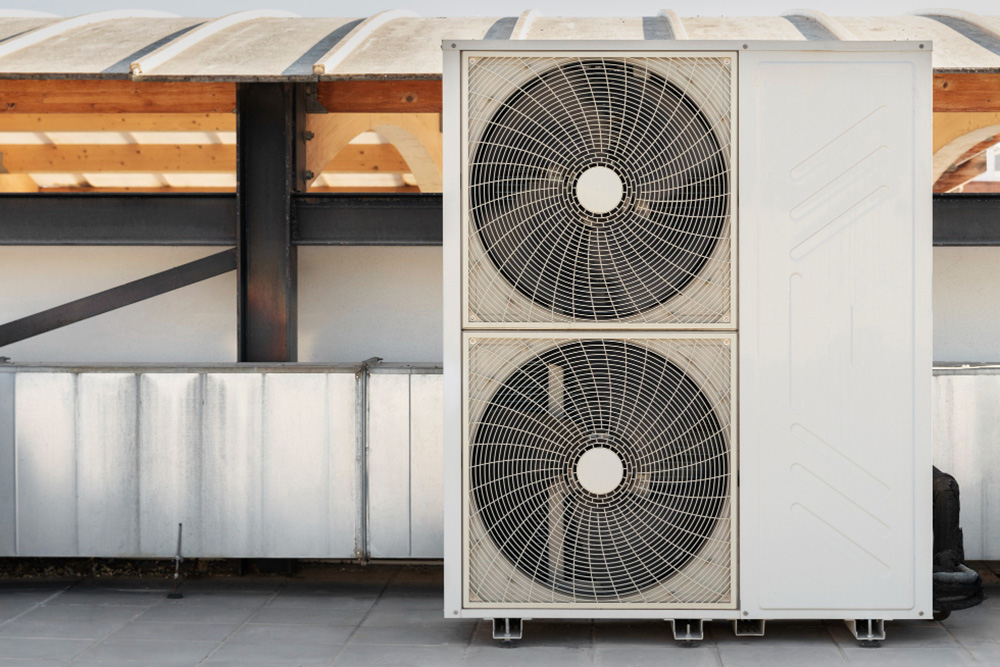How To Choose The Right Industrial Air Conditioning System

Selecting an industrial air conditioning (AC) system for your business is a significant investment that has long-term implications on your facility's comfort, energy efficiency, and overall operation. With a multitude of factors to consider, from the size of your space to the quality of air you need, the process can be overwhelming. In this comprehensive guide, we'll walk you through the essential steps to ensure you land on the perfect AC system for your industrial application.
Understanding Industrial Air Conditioning Needs
Before you start browsing through AC units, it's vital to grasp the scope of your industrial cooling needs. Here are some crucial aspects to understand:
Sizing Your Space
The size of your industrial space will dictate the capacity of the AC unit required. An undersized unit will struggle to keep up with the demand, while an oversized one can lead to short-cycling, which reduces efficiency and can wear out the system prematurely.
Load Calculation
Consider the heat-producing equipment within your space. Everything from machinery to lighting adds to the heat load your AC system must handle. A professional load calculation will account for these variables, ensuring an accurate estimate of your cooling requirements.
Special Environmental Considerations
Certain industries, such as pharmaceuticals or food processing, require precise temperature and humidity controls beyond standard air conditioning. Make a note of any such specifications for your new system.
Energy Efficiency and Sustainability
In today's environmentally conscious environment, energy efficiency is a prime consideration when choosing an industrial AC system.
SEER and EER Ratings
Look for systems with high Seasonal Energy Efficiency Ratio (SEER) and Energy Efficiency Ratio (EER) ratings. These indicate the cooling output relative to energy usage over a typical cooling season or under peak demand, respectively.
Advanced Features
Newer AC models often boast features such as variable-speed motors, which modulate airflow to match stabilizing temperatures more efficiently, saving energy in the long run.
Sustainability
Consider refrigerants with lower global warming potential (GWP) than traditional options, such as R-410A or R-32. Additionally, ensure your chosen system complies with energy efficiency regulations to mitigate its environmental impact.
Air Quality and Ventilation Requirements
The air quality within your industrial space can impact employee health, equipment performance, and even the quality of your products. Don't overlook the following criteria:
Filtration Systems
Look for AC units with high-quality filtration to prevent dust, allergens, and particulate matter from circulating in the air. Some systems may even offer HEPA or MERV filters for finer air cleaning.
Ventilation Rates
Proper ventilation is vital to dilute and remove contaminants. Factoring in the number of occupants, the nature of your operations, and any local ventilation standards will help you determine the necessary air changes per hour for your space.
Humidity Control
Control over humidity levels may be just as important as temperature control in some industrial settings. Choose a system that offers adjustable humidity settings to cater to your specific needs.
Installation Considerations
The proper installation of your industrial AC system is as important as the unit itself. For a seamless and efficient setup:
Work with Professionals
Hire certified technicians experienced in industrial HVAC installations. They can ensure the system is installed correctly, adhering to all local codes and regulations.
Ductwork Design
Well-designed and maintained ductwork is crucial for the performance of your AC system. The ducting should be appropriately sized, insulated, and sealed to minimize energy loss and maximize airflow.
Zoning Options
Consider integrating zoning systems that allow you to control different areas of your facility independently, optimizing comfort and energy usage.
Maintenance and Long-Term Operation
Your AC system's longevity and operational cost are heavily influenced by maintenance.
Regular Inspections
Establish a routine maintenance schedule, including regular inspections of the unit, ductwork, and any associated equipment like chillers or package units.
Filter Changes
Filters must be checked and changed as needed to keep your system running efficiently and to maintain air quality standards.
Professional Support
Have a relationship with an AC service provider who can respond to emergencies, handle repairs, and provide expert advice on system operation and upgrades.
Finalizing Your Decision
With a plethora of options available, selecting an industrial AC system requires thorough consideration of your unique business needs. Here are some final thoughts to guide your decision:
Cost Analysis
While upfront costs are important, consider the total cost of ownership, which includes acquisition, installation, operation, maintenance, and repair costs.
Integration with Existing Systems
An ideal AC system should seamlessly integrate with your current HVAC infrastructure and building management system, if applicable.
Future Expansion
If growth is on the horizon, choose a scalable system that can be easily expanded or modified to accommodate changes in your facility.
Choosing the right industrial AC system is a complex task, and overlooking any of these factors could lead to significant operational challenges down the line. By working through these steps and consulting with industry professionals, you can make a well-informed decision that sets the foundation for a comfortable, productive, and sustainable work environment.
For those seeking industrial AC supplies in Central Florida, Discount Air Supply is your trusted source with a wide range of options and expert advice. Contact us today to start the cooling conversation for your business.